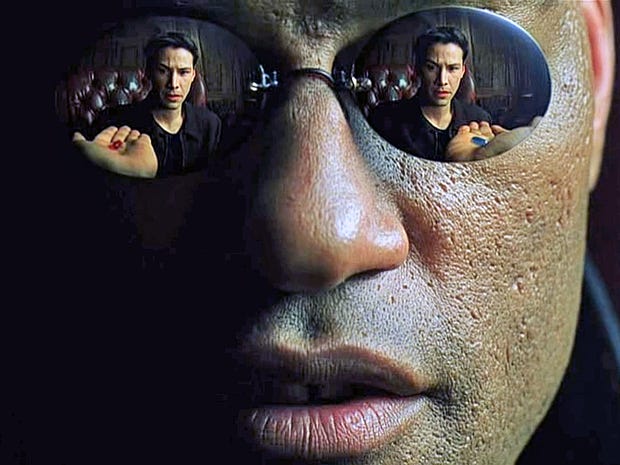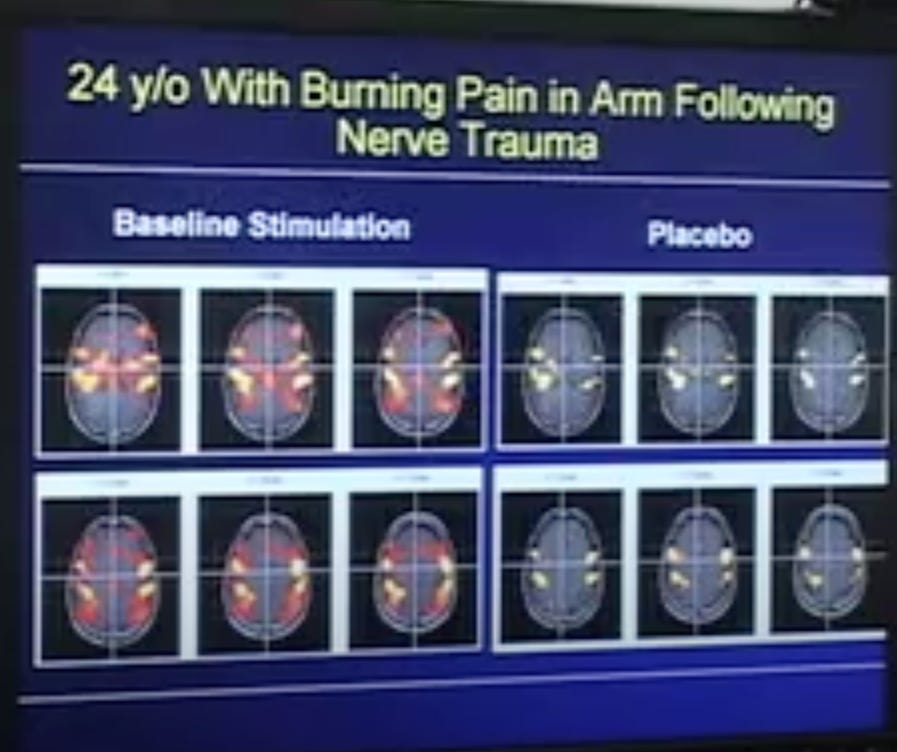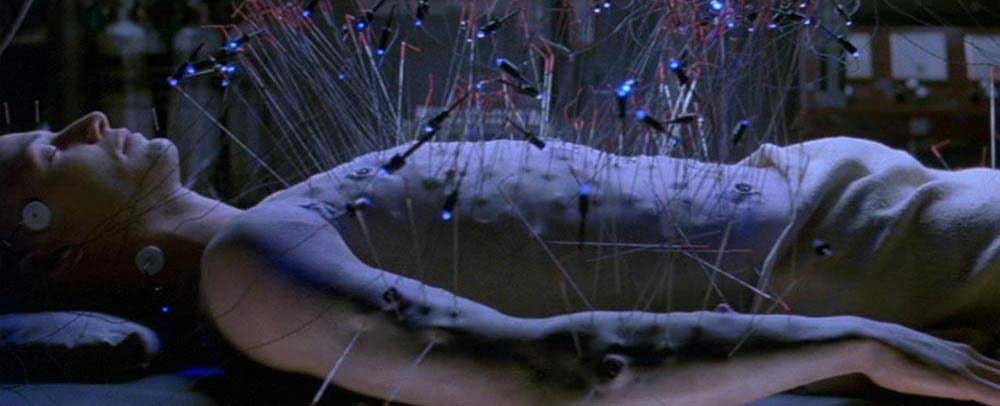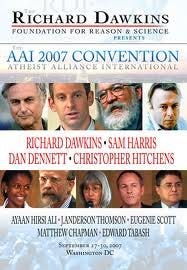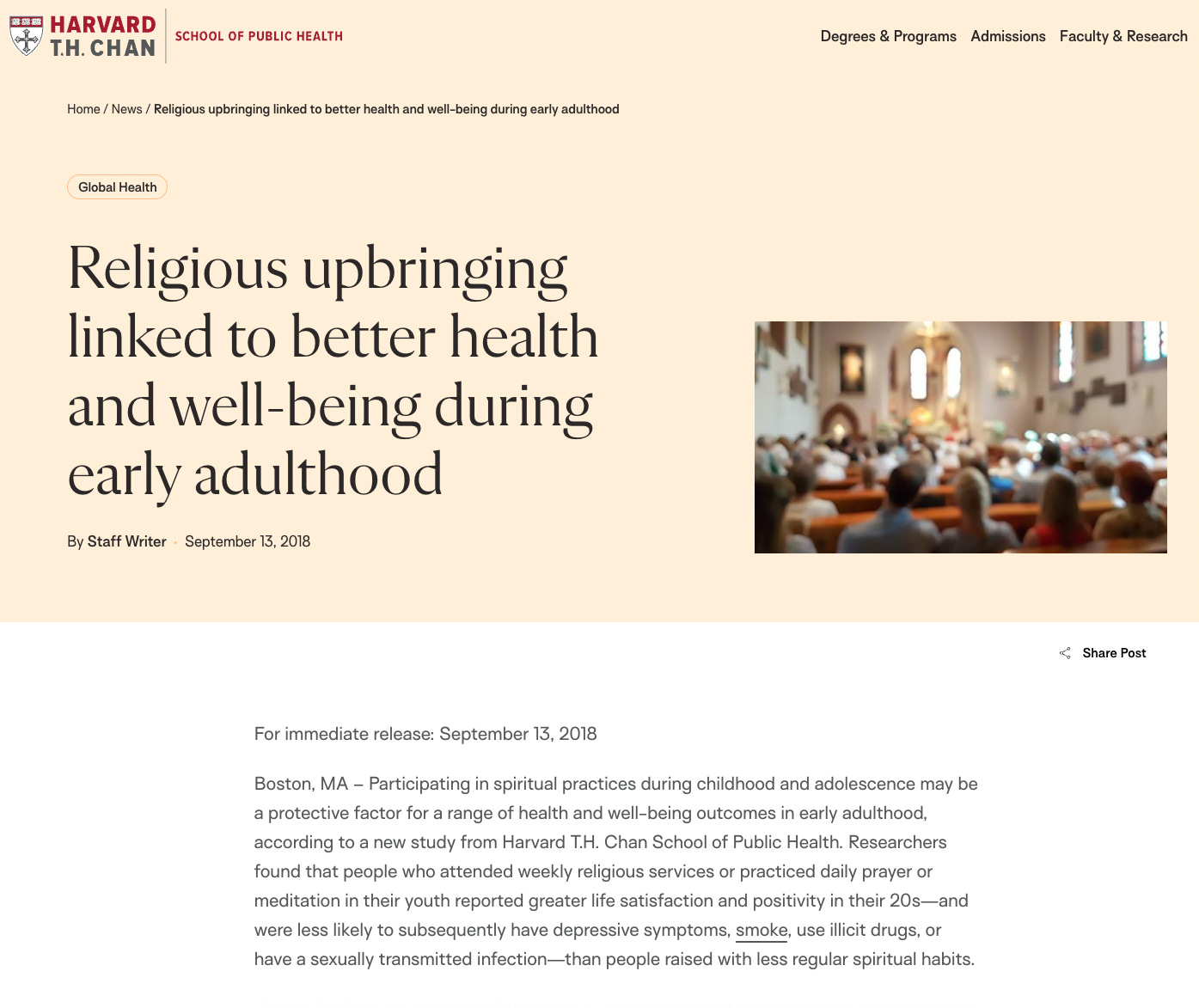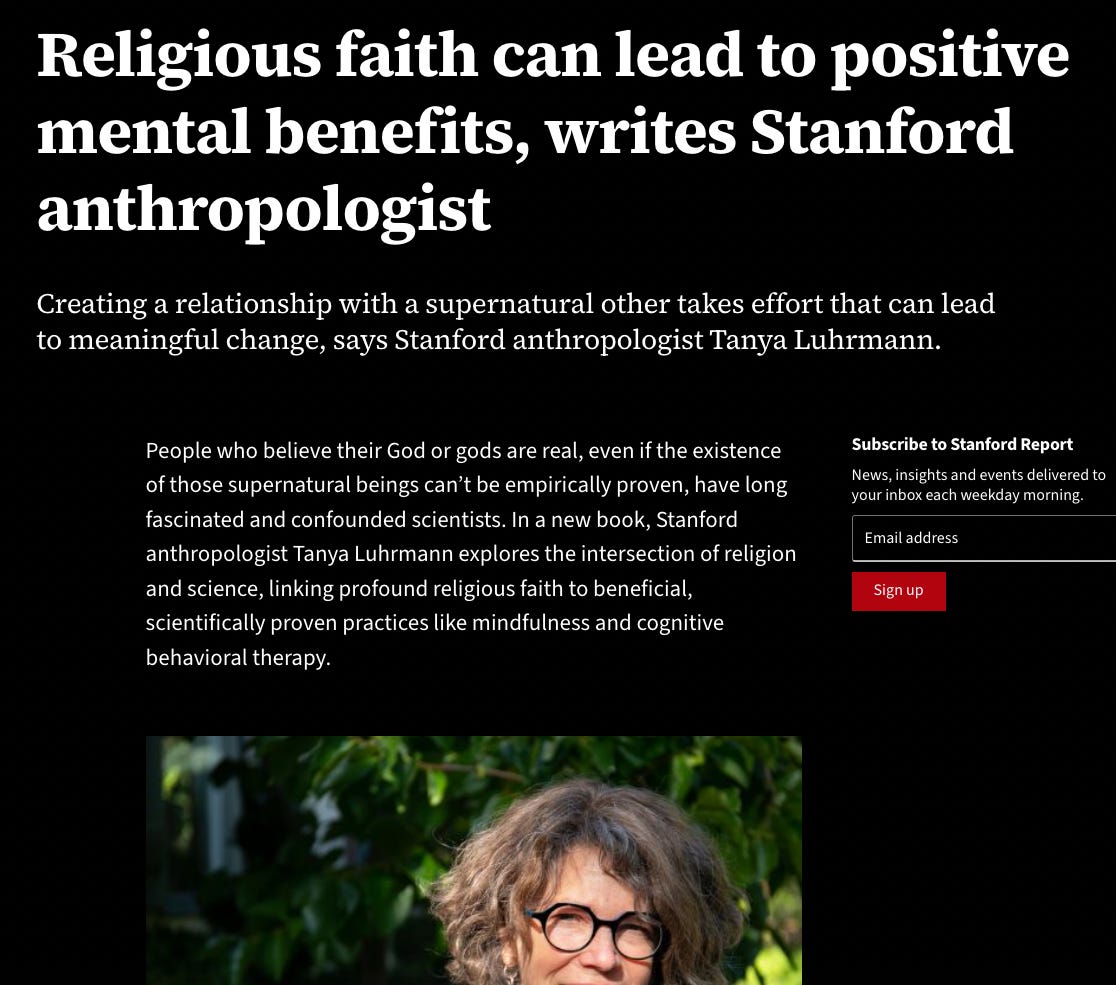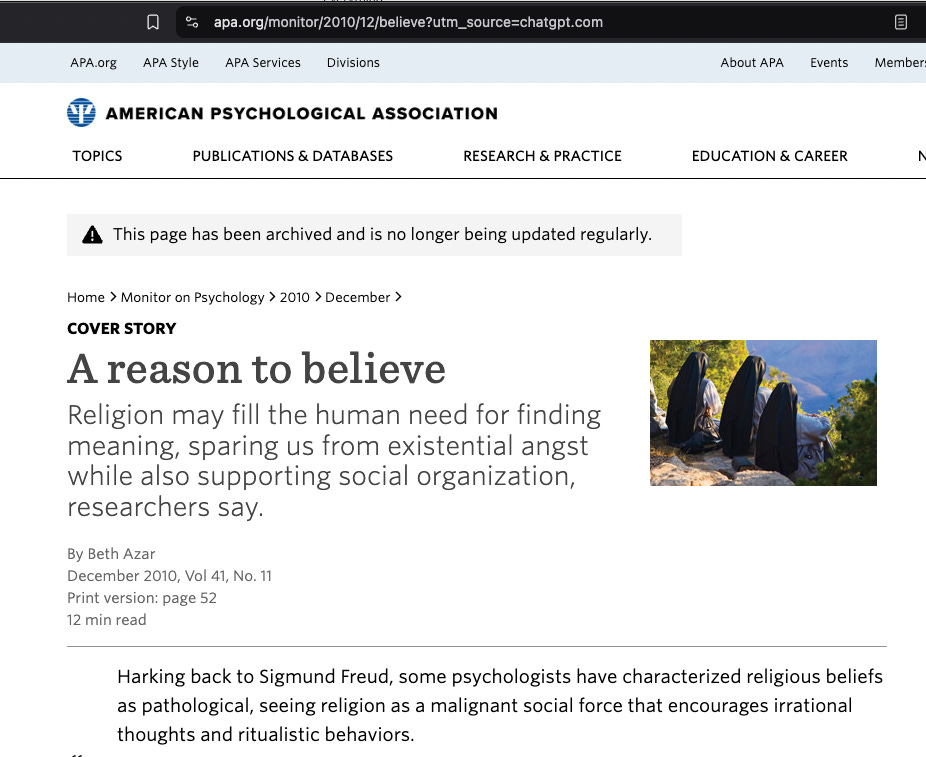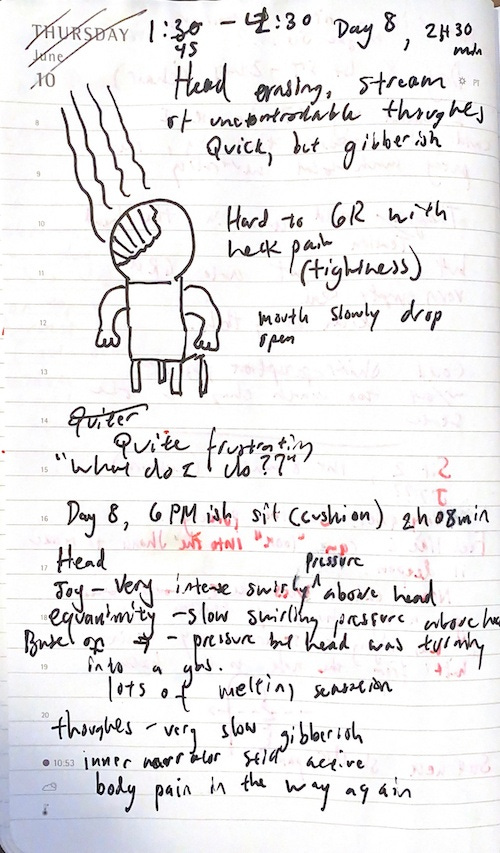The Japanese have a saying, yamai wa ki kara, which means ‘illness starts in the mind.’
I’ve written several posts critiquing the concept of ‘trauma,’ including one addressing the renowned ‘trauma doctor,’ Gabor Mate. This does not mean I reject the importance of making sure you have the right mental programming. In fact, I feel it’s an often overlooked biohack.
Bryan Johnson is spending millions crafting the perfect diet, daily routine and combination of various obscure therapies with the aim of extending his lifespan.
I’ve seen several American programs, books and articles talking about the Okinawan diet as the big secret to Okinawa being home to many many centenarian (people who live past 100). Yet, after a thorough investigation done by Japanese researchers, they concluded that one of the most important factors to living so long wasn’t diet, but whether the person felt needed by their community.
In a TED talk, Robert Waldinger presents the results from the Harvard Study of Adult Development that tracked the lives of men since 1938. What lessons come from the tens of thousands of pages of information on their lifestyles, blood markers, brain scans and so on?
“The clearest message that we get from this 75 year study is this: Good relationships keep us happy and healthy. Period. …Social connections are really good for us and loneliness kills.”
Feeling loved and appreciated by others seems to be an amazing biohack. But what’s the optimal dose of love? Also, how does the placebo effect tie in here? Do people actually need to love you or do you just need to feel loved?
What is the best Placebo?
Researchers out of Stanford took one man’s terrible burning pain in his arm from a crush injury from a 7/10 to 3/10 simply by telling him that they gave him a powerful pain-reliever. In reality he hadn’t received an actual analgesic substance yet. Brain scans of his brain even reflected that indeed, he must be feeling dramatically less pain. The scans are a great illustration of the power of the placebo effect.
A 2007 paper titled A meta-analysis of the placebo response in complementary and alternative medicine trials of irritable bowel syndrome investigated various trials on irritable bowel syndrome from 1970 to 2006 and found that the placebo response rate is significantly high - 42.6%. Irritable bowel syndrome can be debilitating with its unpredictable cramps and sharp pains, persistent bloating and episodes of urgent diarrhea or uncomfortable constipation. Yet, a simple shift in mindset had a significant therapeutic effect in these people. Further, the placebo response rate increased with more office visits. Better placebo response from more office visits was also observed in people with Crohn’s disease and ulcerative colitis. I suppose you could say each office visit increased the patients’ “faith” and their strengthened optimism which actually translated into less distress from the disease.
If we could package the right perception into a pill, it could be the most powerful biohack yet. You may be familiar with the various negative health effects of stress and the downstream effects of the cortisol secretion associated with it. The funny thing is that things are only as stressful as you perceive them to be.
The power of testosterone is receiving a lot of attention lately. Testosterone is a hormone that can dramatically boost everything from mood to confidence to muscle strength and growth. Testosterone is very sensitive to winning - when people win at anything from sports to chess, their testosterone levels go up. A study out of Cambridge found that men only have to think they won to get that testosterone boost. They had men compete on rowing machines, but the machines would randomly announce the winner - regardless of strength or performance. The men who thought they won experienced a rise in testosterone and the losers experienced a decrease.
What other biohacks are we leaving on the table?
There are many unexpected factors that can influence mental and physical health.
For example, a Dr. Joseph Dituri of Florida set the world record for living underwater at 100 days. Some articles on him were claiming that living underwater this long reversed Dituri’s biological age by 10 years.
Dituri did experience some striking benefits. He allegedly achieved:
・Dramatically improved sleep. His REM sleep went from 40% to 60-66%.
・20% increase in telomere length. (Telomere length is supposed to decrease with age)
・1000% increase in stem cell count.
・Markers of inflammation cut in half.
Dr. Dituri noted that these benefits weren’t too surprising to him as he is well aware of the extensive benefits of hyperbaric oxygen therapy and the conditions in his underwater chamber were akin to those of a hyperbaric oxygen chamber.
I don’t think I would have ever had the thought ‘hey maybe living underwater makes you live longer’ if I hadn’t come across this article.
Another unexpected biohack for me was an intensive meditation retreat. Actually, this Substack started out chronicling how I became very interested in the ‘deep end’ of meditation. I was determined to investigate whether a full-on meditation retreat could yield some benefit that was unique from than the average 20-minutes-a-day mindfulness practice. Long story short, meditating for about 10 hours a day for 10 days straight culminated in a mental big bang - a kind of rebirth out of nothingness. This lead to a permanent, dramatic shift in my mind’s everyday operation. To put it into practical terms, it significantly reduced my baseline day-to-day impatience with reality.
This significant and lasting reduction in stress arguably had no basis in physical reality - no pills, no exercise routine, no new diet. Just plenty of mind exploration along with neck and back pain. It turned out to be the best placebo ever.
A Powerful Placebo that’s been mocked and discarded?
Over four years ago, while researching for my 2020 video titled Why are you Anxious and Unfocused?, I came across a paper that found that religious people had less activity in the ACC of the brain, suggesting that they experience less uncertainty and therefore less anxiety. A point highlighted in that video is that anxiety essentially is uncertainty, so if you want to be less anxious, you need to make your circumstances more certain. One way the paper says to do this is to constrain your worldview with a religion that provides an explanatory framework about reality.
Setting the question of whether God exists or not aside, believing he does may provide some pretty dramatic ‘placebo’ effects. (Perhaps different conceptions of God would yield different results)
Ayaan Hirsi Ali is a Somali-born Dutch-American writer, activist, conservative thinker and former politician. Her 2006 book Infidel chronicles her emotional and intellectual journey to becoming an atheist after seeking asylum in the Netherlands. A blurb from famous atheist and author of the book God Is Not Great, Christopher Hitchens, appears on the cover of the book.
Her Wikipedia entry reads:
Ali was a central figure in “New Atheism” since its beginnings. She was strongly associated with the movement, along with Christopher Hitchens, who regarded Ali as "the most important public intellectual probably ever to come out of Africa".
Ayaan Hirsi Ali appeared along with other famous atheists like Richard Dawkins, Sam Harris, Dan Dennet and Christopher Hitchens in the The Richard Dawkins Foundation for Reason and Science’s 2007 Atheist Alliance International Convention.
Just 6 months ago in June 2024, Richard Dawkins was shocked to hear during UnHerd’s The God Debate that Ali had fully embraced Christianity.
In a conversation with podcaster Alex O’Connor, she explains how investigating the differences between different religions got her very interested in the Bible. She discusses the wisdom she found in the Bible and says:
In the years I was in therapy, I often encountered rational conclusions about how to respond to certain situations. I was diagnosed with PTSD, partly due to past trauma and my attempts to shut off those experiences. This also included trying to block out much of what happened in my childhood. The advice you find in therapy books and studies of the human condition often aligns with what is plainly stated in the Bible—and it’s free.
One significant aspect therapists emphasize for people with a damaged childhood, like mine, is the impact of a lack of love and the fear of abandonment and rejection. Reading the message of Jesus now, I see abundant love. God gave you life, He loves you unconditionally and infinitely. When I read that now, I think about how so many people go through therapy to arrive at similar conclusions, yet it’s all right there in the Bible. It’s part of the culture many have inherited—you could have gone to church or spoken to people within that tradition instead of needing an institution to reach these truths.
What Ali seems to be alluding to is the fact that there are so many negative mental effects to not receiving sufficient love, so would it not be immensely beneficial from a psychological perspective to wholeheartedly believe that there was a divine father-figure that loved you limitlessly?
Of course, your faith, the degree to which you believed that would be the deciding factor. Similar to the people with gastrointestinal conditions who experienced a better placebo effect from enhancing their belief that they would get better through more office visits… strong faith leading to greater healing is a theme in the Bible.
And behold, a woman who was diseased with an issue of blood for twelve years came up behind Him and touched the hem of His garment;
for she said to herself, “If I may but touch His garment, I shall be whole.”
But Jesus turned about, and when He saw her, He said, “Daughter, be of good comfort; thy faith hath made thee whole.” And the woman was made whole from that hour.
—Matthew 9:20-22 (KJ21)
Jesus uses the phrase “thy faith hath made thee whole” again in reference to a cured Leper in Luke 17:15-19.
Health benefits of religion
A 2018 article out of the Harvard T.H. Chan School of Public Health headlines:
Religious upbringing linked to better health and well-being during early adulthood.
The results showed that people who attended religious services at least weekly in childhood and adolescence were approximately 18% more likely to report higher happiness as young adults (ages 23–30) than those who never attended services. They were also 29% more likely to volunteer in their communities and 33% less likely to use illicit drugs.
Along the same lines of Ayaan Hirsi Ali’s point, another article out of the Stanford Report headlines that:
Religious faith can lead to positive mental benefits, writes Stanford anthropologist
“Prayer is a lot like cognitive behavioral therapy,” Luhrmann said. “It’s a way you attend to your own inner experience, let go of distracting thoughts and focus on more positive thoughts. By expressing gratitude, you shift attention from the way that things are going wrong to the ways they are going right.”
One of the popular educational animated Youtube channel Kurzgesagt’s more popular videos with 15 million views is An Antidote to Dissatisfaction. In the video they discuss the dramatic mental health benefits of gratitude. Gratitude is another important theme in the Bible.
"In every thing give thanks, for this is the will of God in Christ Jesus concerning you."
—1 Thessalonians 5:18 (KJ21)
"Be anxious for nothing, but in every thing by prayer and supplication with thanksgiving, let your requests be made known unto God. And the peace of God, which passeth all understanding, shall keep your hearts and minds through Christ Jesus."
—Philippians 4:6-7 (KJ21)
In fact, you could argue that gratitude is the logical result of the “first commandment” put forth by Jesus: to love god fully with your heart, soul and mind. If you love the creator of reality with all your heart, mind and soul, would you not be more grateful for your circumstances?
"And Jesus answered him, 'The first of all the commandments is: Hear, O Israel, the Lord our God is one Lord; and thou shalt love the Lord thy God with all thy heart, and with all thy soul, and with all thy mind, and with all thy strength. This is the first commandment.'"
—Mark 12:29-30 (KJ21)
According to The Scientific Study of Positive Psychology, Religion/Spirituality, and Physical Health, “Similarly, religion and spirituality (R/S) variables including religious service attendance, religious/spiritual coping, religious orientation, and prayer have demonstrated relations with better health outcomes.”
There’s a very logical explanation: magic
One thing that resonated with me in the Buddhist scriptures was that the Buddha has, on some occassios, said something along the lines of ‘do the practice and confirm for yourself whether it yields the results I speak of.’
"Come, Kalamas. Do not go upon what has been acquired by repeated hearing, nor upon tradition, nor upon rumor, nor upon scripture, nor upon surmise, nor upon axiom, nor upon specious reasoning, nor upon bias toward a notion pondered over, nor upon another's seeming ability, nor upon the consideration 'The monk is our teacher.' When you yourselves know: 'These things are bad, blamable, censured by the wise; undertaken and observed, these things lead to harm and ill,' abandon them... When you yourselves know: 'These things are good, blameless, praised by the wise; undertaken and observed, these things lead to benefit and happiness,' enter on and abide in them."
—Kalama Sutta
The meditation technique that I jumped into when I did my first meditation retreat by myself in a cabin in Nikkō two years ago was a bit different from the more popular ‘focus on your breath’ technique.
Keep reading with a 7-day free trial
Subscribe to Joseph Everett’s WIL Newsletter to keep reading this post and get 7 days of free access to the full post archives.


